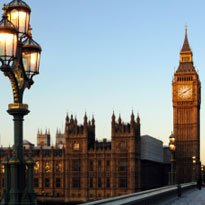NHS runs up £31.5m Fujitsu dispute bill
- 12 June 2013

The NHS has run up £31.5m in legal costs as a result of Fujitsu’s departure from the National Programme for IT in the NHS in 2008.
Questioned at the Common’s Public Accounts Committee this afternoon, Tim Donohoe, who has become senior responsible owner for the local service provider programmes at the Department of Health, confirmed a legal dispute with the company was ongoing.
He said an “evidence phase” had concluded and an arbitration panel would decide on what, if any, compensation Fujitsu should receive.
The company was supposed to install Cerner Millennium at trusts across the South, but left the programme with just nine ‘live sites’ in place. Fujitsu’s original contract was for £896m, and it is thought to be seeking £700m.
The long-standing dispute is widely believed to have influenced the DH’s negotiations with another of NPfIT’s local service providers, CSC, which was contracted to deliver the Lorenzo electronic patient record to trusts in the North, Midlands and East of England.
Asked how many trusts are “fully live” with the system, Donohoe said one – University Hospitals of Morecambe Bay NHS Foundation Trust – “except for the modules that have yet to be delivered.”
Despite this, the committee was told that the NHS has already paid CSC £1.1 billion of its original £3.8 billion deal at 2012 prices. It will pay out another £1 billion for Lorenzo and ‘interim’ systems such as TPP’s SystmOne.
CSC and the DH agreed a new, interim deal for the NME last September. This removed the company’s exclusive right to be the IT provider to the NME.
But it also promised central funding for trusts that wanted to take Lorenzo if they could develop a “robust business case” and get it approved by the NME Programme Board.
EHI revealed last year that trusts will receive incentives to take the system, as well as funding to cover local deployment and service costs.
PAC chair Margaret Hodge described the money as a “bribe” for trusts to take Lorenzo and PAC member Richard Bacon described it as “a bung.”
Hodge asked Donohoe “how much have you got to help, support, trusts to buy this rotten system?” To which he replied that £600m was available for Lorenzo deployments at up to 22 trusts.
He also insisted that the deal with the company was the best that could be achieved, because the DH was not in a strong negotiating position.
“A year ago, they knew we could not deliver 160 trusts and we knew they could not deliver to 160 trusts, so we were heading for a dispute,” he said.
Sir David Nicholson, the chief executive of NHS England, who was the senior responsible owner for NPfIT until the latest round of NHS re-organisation took effect in April, supported his position.
“We have essentially over the last few years been trying to make the best deal we could for the tax payers,” he said.
At the PAC meeting, it also became clear that the NHS will pay CSC for reaching future “key milestones" – although these were not specified.
The committee was told that the basis of the current CSC deal was signed by Katie Davis on the day that she left as the managing director of NHS Informatics, in August 2011.
Asked why it had taken two years, to date, to finalise the deal, Donohoe said it had been a complex negotiation. He said he expected the final contract to be ready in September.
“We’re moving towards the final iteration of the contract. It’s been a very hard negotiation,” he said.




